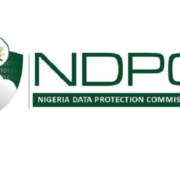The role of a Data Protection Officer (DPO) has become increasingly important in organisations due to the growing concern for data protection and privacy and so, Section 32of the Nigeria Data Protection Act 2023 mandates the appointment of a DPO to ensure compliance with data protection laws and regulations. A DPO plays a vital role in organisations, serving as a focal point for data protection matters, and ensuring that personal data is handled responsibly and ethically. In this article, we will explore the role of a DPO in an organisation, with a focus on their reporting line and the importance of direct reporting to management.
The Role of a Data Protection Officer
A DPO is responsible for ensuring that an organisation complies with data protection laws and regulations. Their primary duties include:
• Monitoring and implementing data protection policies and procedure;
• Conducting data protection impact assessments and risk analyses;
• Providing training and awareness programs for employees;
• Handling data subject requests and complaints;
• Collaborating with supervisory authorities and data protection regulators.
An Ideal Reporting Line of a DPO
A DPO’s reporting line is a factor that affects the root of their effectiveness. They should report directly to the management, preferably to the CEO or a senior executive. This direct reporting line ensures that the DPO’s voice is heard at the top, enabling them to influence decision-making. Similarly, data protection concerns are escalated promptly, and necessary actions are taken. The DPO also would have access to necessary resources and support

The red line with arrowhead is reporting line directly to the CEO
Direct reporting of the Data Protection Officer (DPO) to the management is necessary for several reasons:
• Independence: Direct reporting ensures the DPO’s independence and autonomy, allowing for unbiased advice and decision-making.
• Access to Top-Level Decision-Making: Direct reporting provides the DPO with a seat at the table, enabling them to influence strategic decisions and ensure data protection is integrated into the organization’s overall strategy.
• Prompt Escalation: Direct reporting facilitates swift escalation of data protection concerns, enabling swift action and minimizing potential risks.
• Resource Allocation: Direct reporting ensures the DPO has direct access to necessary resources and support, enabling effective implementation of data protection measures.
• Accountability: Direct reporting promotes accountability, as the DPO is directly responsible to the management for data protection compliance and effectiveness.
Having the DPO report directly to the management, organizations can ensure effective data protection, maintain compliance with regulations, and build trust with stakeholders.
Organisations can outsource the role of a DPO to a firm or individual outside their organisation. This is particularly useful for smaller organisations or those with limited resources. A single DPO can serve multiple organisations, providing cost-effective and expert data protection services.
Criteria for Appointing a DPO
When appointing a DPO, organisations should consider the following criteria
• Expertise in data protection laws and regulations
• Knowledge of the organisation’s industry and operations
• Ability to influence decision-making
• Independence and autonomy
Conclusion
A DPO plays a vital role in ensuring data protection compliance in organisations. Direct reporting to management is essential to ensure the DPO’s voice is heard and their concerns are addressed promptly. Outsourcing the role of a DPO can be a cost-effective solution for organisations. The DPO Placement offers expert DPO outsourcing services. Contact us today to ensure effective data protection compliance in your organisation.
DPO Placement and Consultancy Limited – Your Partner in Data Protection Compliance
Contact us: contact@dpoplacement.com
Phone: +234 809 989 5658
Website: https://dpoplacement.com/

